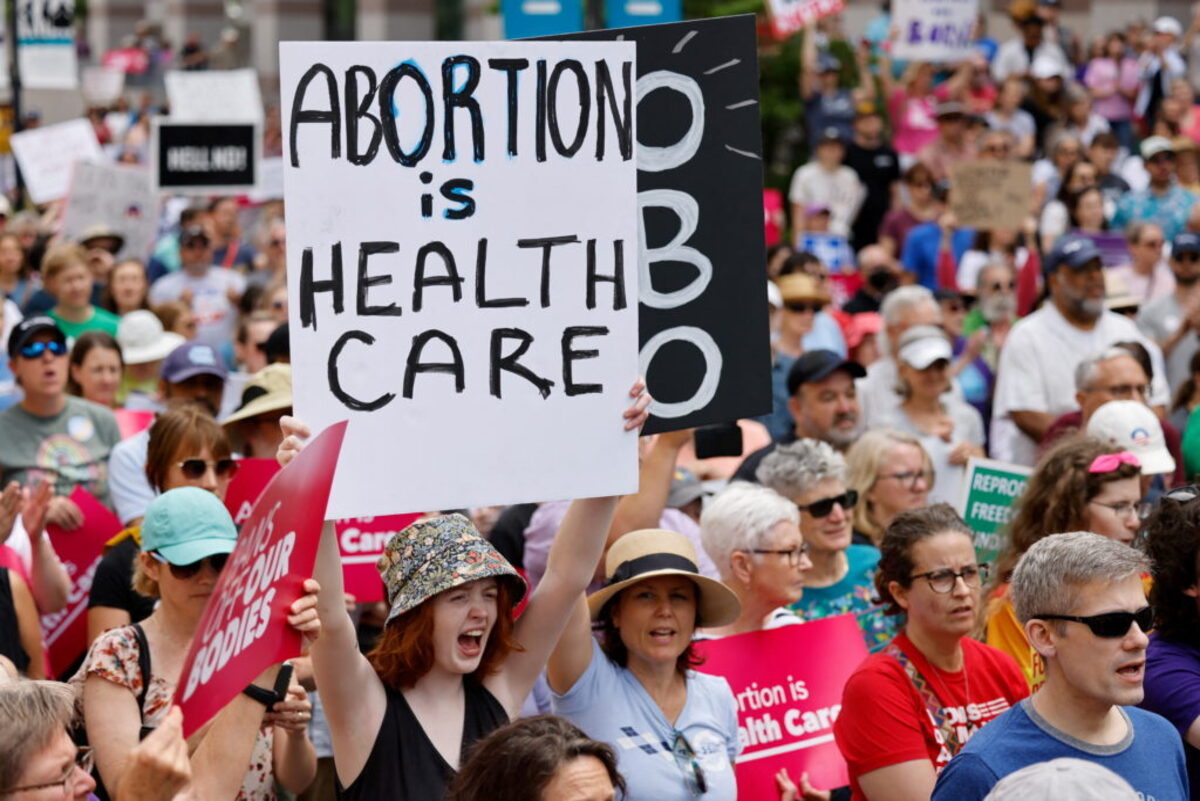Positive Impact: North Carolina’s Abortion Rates Plummet by 30% Post-Ban Implementation!
A new study shows that after North Carolina’s 12-week abortion ban went into force, the number of abortions dropped by 31% in just one month. This was the biggest drop of any state.
The Guttmacher Institute, a study group that supports abortion rights, found that after the law went into effect on July 1, there were 1,310 fewer abortions in the health system that month than in June.
The study found that abortions dropped by 7% across the country.
North Carolina was one of the few states in the southeast that didn’t have many limits on abortion, so the number of abortions there rose by 55% in the first half of 2023 compared to the same time in 2020.
The law in North Carolina became law in May after Republicans were able to overturn Gov. Roy Cooper’s veto.
A Guttmacher study from last month showed that the number of abortions went up in states that were close to or bordered by states that banned or severely limited abortions.
But while the number of abortions dropped a lot in North Carolina in July, they went up in South Carolina, Virginia, the District of Columbia, and Maryland.
Isaac Maddow-Zimet, the report’s lead author and a data scientist, said that the drop is probably because fewer people are coming to North Carolina from other states because of extra rules on top of the gestational age limit.
Maddow-Zimet said, “We have never seen that kind of sharp drop in any other state.”
The law says that people who want to have an abortion must see a counselor in person at least 72 hours before the surgery or drug appointment.
The 72-hour rule means that travelers must either make two trips to North Carolina or pay more for lodging if they want to stay for more than one day. Most likely, they would have to miss work, and some of them might need to find child care.
Some people may find that to be too many problems when they are trying to get care. Maddow-Zimet added, “On top of that, the fact that neighboring states aren’t seeing an increase makes us worry about whether people can get medicine.”
Since the Dobbs ruling last year, which reversed Roe v. Wade, more than a dozen states have either banned abortions or made it very hard to get one.
While Guttmacher looks at data every month, the effects of South Carolina’s six-week ban and Indiana’s near-total ban, which both started in August, have not yet been taken into account.
Maddow-Zimet said that he thinks the South Carolina rule will have a big effect on getting an abortion in the southeast, especially when combined with North Carolina’s law.
OB/GYN Jonas Swartz of Duke Health in Durham said that the law is also hard on doctors because they now have to find time for patients who need twice as many visits.
“Every clinic was scrambling to figure out how to fit these patients in for a counseling appointment that wasn’t medically necessary in the time they had available.” Or, how can we make more room in our office for those therapy sessions?” What Swartz said.
“Anything that says people can still get care up to 12 weeks should come with a big disclaimer that the law has made it much harder to get care even before 12 weeks,” he said.
Also Read:




